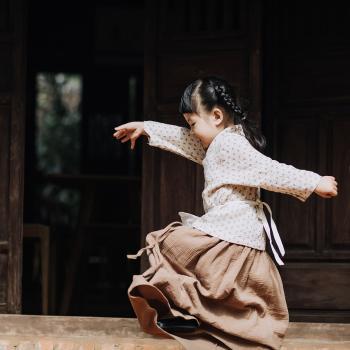I noticed something interesting when I was glanced over at the stack of books next to my reading chair a couple of days ago: all of the books were written by women.
Loving My Actual Neighbor (Alexandra Kuykendall)
Becoming (Michelle Obama)
Devotions (Mary Oliver)
Girls & Sex (Peggy Orenstein)
Ordinary Light (Tracy K Smith)
Perhaps this is interesting to you. Perhaps it isn’t. Perhaps this is the exact stack you find next to your reading chair (or bedside table, or in purse or on the side of the dining room table, wherever it is that you do your reading). And perhaps this is the exact opposite of books you normally find yourself engorged in, because you like fiction – which I do as well, but when library loans and book club picks intersect, you just go with the nonfiction flow. Because you prefer male writers. Because, because, because… the list goes on.

Like many of us, I’ve spent a lot of time thinking about Rachel Held Evans this last week, reading nearly every tribute to cross my social media path, letting her legacy leave an imprint on my soul, wondering how I might cultivate that same generosity in a world desperate for abundance.
And as I mentioned in my post earlier this week, were it not for her, I doubt my reading list would look like it does today.
Somewhere along the way, I began to believe that women were only supposed to, or really, only could write in a certain way or even for certain audiences. When it came to Christian or theological reading, my bookshelf was filled with mostly white, male authors. These were the books assigned to me to read in seminary and from pastors, when the preacher-man referenced an author’s words on the PowerPoint screen.
Whose names did I become accustomed to see? J.I. Packer. Phillip Yancey. A.W. Tozer. C.S. Lewis. And sometimes, if the pastor was feeling particularly daring, a Walter Brueggemann thought or two.
Of course, when it came to reading fiction, I usually, naturally turned to women writers – after all, these were the ones who held the market on chick lit.
But it wasn’t until I left ministry that I began to discover and intentionally dive into a myriad of voices – including women and people of color – that I hadn’t even thought of paying attention to before. The funny thing, of course, is that I didn’t necessarily realize the gentle, guiding ways of voices like Sarah Bessey and Austin Channing Brown and Kathy Khang, women who were challenging me to think outside the box even though I didn’t understand half of what they were saying.
I wasn’t there yet.
Even though I already considered myself a card-carrying feminist, I didn’t realize how much I still camped out in the land of patriarchy – after all, I wasn’t looking for a new set of theologians to learn from, I was just looking for other bloggers who might, somewhere along the road, become my people.
But I’ll tell you something else, something I’ve said a million times before and I’ll say a million times again: when we only listen to one type of voice, we miss out on the beauty of the choir.
And the beauty of this choir acknowledges the wide array of every color, of women and men, of gay and straight, of black and white, of disabled and able-bodied. I could go on, for my short list is nowhere near exhaustive, but the deal is this…
If you’re a pastor, look at who you’re studying, quoting and therefore proclaiming as truth every Sunday morning. So, if you already have a quote by a white dude, find a quote by a woman of color to fill the next slide.
If you’re a reader, look at who fills your bookshelves and your bedside tables alike. It’s not hard to read with intention, even if we have to do a little research first. Also, this applies to parents of young readers as well! We Need Diverse Books is a great place to start, as is this post of 31 diverse books that I wrote in January.
And if you’re a listener, look at who fills the airwaves of your listening experience. It’s really easy for me to only listen to podcasts by white progressive woman like myself. But guess what? When I only listen to voices of people who believe and think and act like me, I miss out.
In fact, we all miss out.
And I don’t know about you, but I’m done living that way.
In this with you,
cm.
—
What other resources do you need or recommend? Leave a comment below!
*Post contains Amazon Affiliate links













